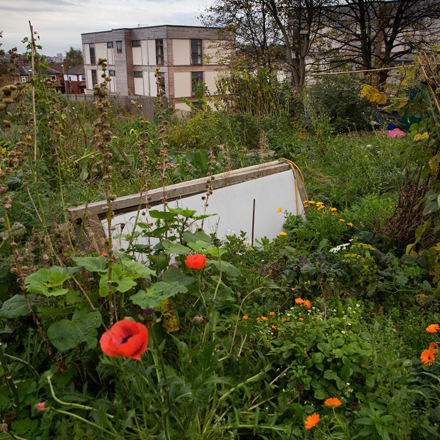
Our World Habitat Award finalists throughout the years have spanned hundreds of countries and showcase various approaches to housing solutions. However, one of the things they all share is a commitment to improving the lives of vulnerable people through improved habitats. Yet, it is not always just about people. Many of our winning and finalist projects actively encourage the introduction of green spaces and wildlife. This World Wildlife Day we have looked back through our winning/finalist projects which incorporate wildlife.
Lilac (Low Impact Affordable Community ) (2015-16 finalist)
Lilac based in Leeds, UK is a cohousing project surrounded by nature and wildlife. The site includes 20 households and prioritises nature and wildlife with a shared community garden. There are 25 other active gardens five of which are open to the public so that more people can access the natural area. You can find out more about the project in our video .
East Lakes Conservation Community (2001 finalist)
The East Lakes C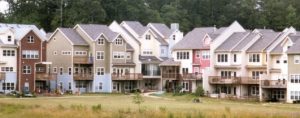 onservation Community is a co-housing community in a low-income area of Atlanta, USA. The project demonstrates how residential developments can be socially, ecologically and economically sustainable. The development incorporates wildlife corridors to work with rather than against wildlife and part of the development is a natural woodland area. These areas are utilised by local schools so that children from inner city Atlanta can learn more about wildlife. Read more about the project on their project page.
onservation Community is a co-housing community in a low-income area of Atlanta, USA. The project demonstrates how residential developments can be socially, ecologically and economically sustainable. The development incorporates wildlife corridors to work with rather than against wildlife and part of the development is a natural woodland area. These areas are utilised by local schools so that children from inner city Atlanta can learn more about wildlife. Read more about the project on their project page.
Our 2015-16 winners ma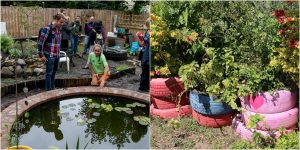 y be on different sides of the world but both feature community gardens where wildlife can flourish. Here is Giroscope’s (one of the charities in Self Help Housing in the North of England) community garden in Hull, UK. With the help of volunteers the garden has gone from a derelict site to an area where volunteers can learn new gardening skills and increase their wildlife knowledge. In Puerto Rico at Caño Martín Peña Community Land Trust in San Juan the creation of a community garden has meant that nature can be preserved in the community. The use of discarded materials such as tyres for plant pots means that sustainability is increased. Read more about our Peer Exchanges to both Self-help Housing in the North of England and Caño Martín Peña Community Land Trust.
y be on different sides of the world but both feature community gardens where wildlife can flourish. Here is Giroscope’s (one of the charities in Self Help Housing in the North of England) community garden in Hull, UK. With the help of volunteers the garden has gone from a derelict site to an area where volunteers can learn new gardening skills and increase their wildlife knowledge. In Puerto Rico at Caño Martín Peña Community Land Trust in San Juan the creation of a community garden has meant that nature can be preserved in the community. The use of discarded materials such as tyres for plant pots means that sustainability is increased. Read more about our Peer Exchanges to both Self-help Housing in the North of England and Caño Martín Peña Community Land Trust.
Ekostaden Augustenborg (2010 winner)
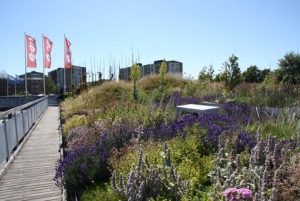 Ekostaden Augustenborg in Malmö, Sweden works in harmony with nature thanks to its incorporation of green roofs into the development. The project in inner city Malmö developed the world’s first botanical roof garden providing local habitat and absorbing rainwater. It has helped to increase the areas biodiversity by 50%. In 2011 we visited this project on our Peer Exchange you can read more about the exchange here. You can see the green roofs more closely in this video by the Scandinavian Green Roofs Association.
Ekostaden Augustenborg in Malmö, Sweden works in harmony with nature thanks to its incorporation of green roofs into the development. The project in inner city Malmö developed the world’s first botanical roof garden providing local habitat and absorbing rainwater. It has helped to increase the areas biodiversity by 50%. In 2011 we visited this project on our Peer Exchange you can read more about the exchange here. You can see the green roofs more closely in this video by the Scandinavian Green Roofs Association.
One Planet Communities (2012 finalist)
One Planet Communities works around the world to create sustainable communities and to reduce ecological footprints. Their housing project in Jinshan near Guangzhou in South China has attracted wildlife in a residential area due to the inclusion of wetlands and greenspaces in the development. One Planet Communities also developed our 2002 finalist Beddington Zero Energy Development a carbon neutral housing scheme in London.
Ecovillage at Ithaca (1999 finalist)
Ecovilla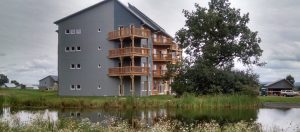 ge at Ithaca , USA is now the largest co-housing community in the world. The development works to include wildlife through the incorporation of green landscapes in the development and through communal activities such as tree planting. You can read an update on what the project has achieved since 1999 here.
ge at Ithaca , USA is now the largest co-housing community in the world. The development works to include wildlife through the incorporation of green landscapes in the development and through communal activities such as tree planting. You can read an update on what the project has achieved since 1999 here.
As these examples show it is possible for housing to be inclusive of wildlife as well as providing quality homes for those in need. If your housing project is working to encourage the inclusion of wildlife and increase sustainability we would love to hear about it. Tell us more through our share your solutions page.

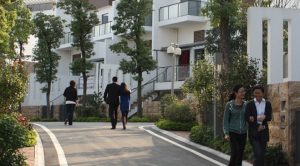
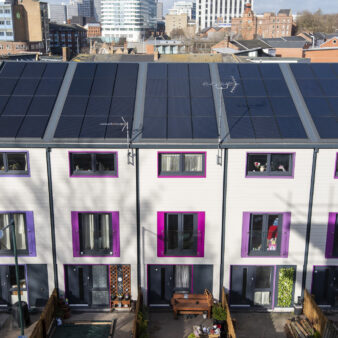
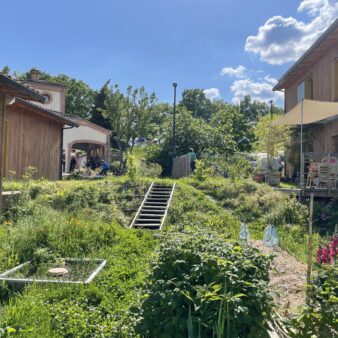
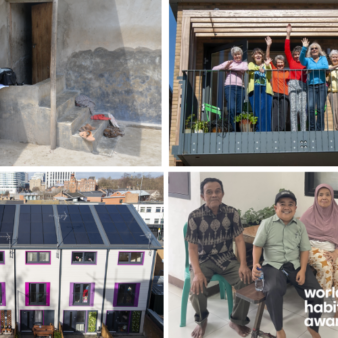
Join the discussion